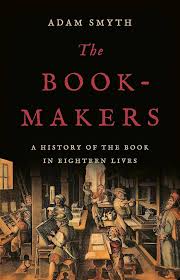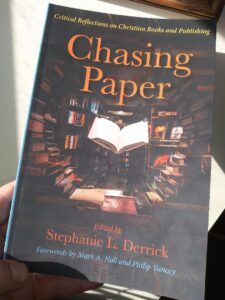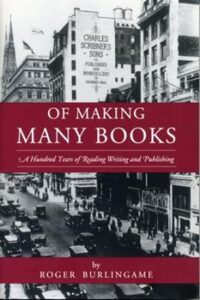As a lover of books and a lover of history, I found Adam Smyth’s The Book-Makers a delight. By zeroing in on a dozen and a half practitioners of the trade, Smyth gives us both a happy overview and fascinating stories of these often quirky individuals. My full review appears in the January-February 2025 edition of Christianity Today, which can also be found online. Here are a couple parts of the review that the editors left on the cutting room floor.
The chapter on an early bookbinder, William Wildgoose (yes, that really was his name) begins and ends with the tale of a wayward volume that was first housed in the famous Bodleian Library in Oxford, only to return unexpectedly three centuries later. In 1905 a young man comes in wanting advice on rebinding his ancient book. When the sub-librarian and assistant librarian inspect it closely—and then more closely!—they discover that this was once in the Bodleian’s collection, sold off as new printings became available. The book has been remarkably preserved through generations. And like someone who found a priceless pearl in a field, the Bodleian raises an enormous sum now equivalent to $300,000 to buy it back. The volume? Shakespeare’s First Folio, bound by William Wildgoose in 1623.
While zines go back a hundred years, Smyth features examples of the last few decades. The creators of these periodicals intentionally positioned them outside mainstream publishing in content and production values, often being photocopied and stapled. They knew that online existed, but they were committed to the tangibility, the physicality of their publications. They believed it provided a more multi-sensual experience that is not diluted by the digital.
Perhaps the author chose to highlight them for this very reason, as Smyth’s volume is in many ways a celebration of the physical book in all its dimensions.





 Secure endorsements from people who already have platforms. Then present those along with your proposal. These can be previously published authors, well-known speakers or bloggers, leaders in organizations related to the topic of your book, or professors at seminaries or colleges. If you know people like that, ask them to read your manuscript or proposal with an eye toward possibly offering a two- or three-sentence commendation should they find it worthwhile.
Secure endorsements from people who already have platforms. Then present those along with your proposal. These can be previously published authors, well-known speakers or bloggers, leaders in organizations related to the topic of your book, or professors at seminaries or colleges. If you know people like that, ask them to read your manuscript or proposal with an eye toward possibly offering a two- or three-sentence commendation should they find it worthwhile.